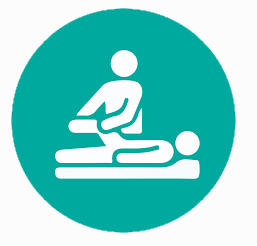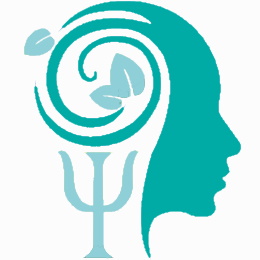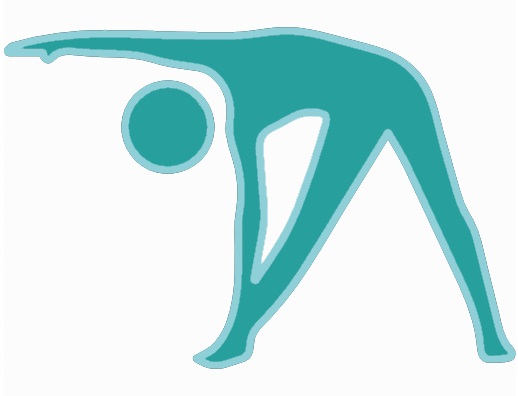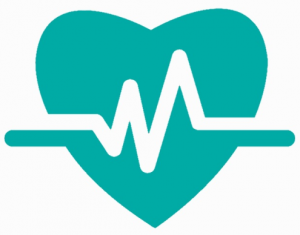Physiatry | Sports Medicine
Physiatry, also known as Physical Medicine and Rehabilitation (MFR), is a medical speciality that focuses on the prevention, diagnosis and treatment of conditions affecting the musculoskeletal and neuromuscular system, which result in functional limitations.
This medical speciality plays a crucial role in promoting rehabilitation and improving the quality of life of patients with disabling conditions.
This area uses a variety of therapeutic techniques and modalities to help patients regain functionality, adapt to limitations and optimise their general well-being.
Specialising in Sports Medicine allows doctors to work in the prevention, diagnosis and treatment of injuries and medical conditions related to physical activity and sport.
How does the physiatrist's assessment work?
Physiatrists use various diagnostic methods to assess and understand patients' musculoskeletal and neuromuscular conditions.
Here are some of the common diagnostic means of assessment:
-
Clinical Assessment: The clinical assessment is a fundamental part of the physiatrist's diagnosis. This includes a detailed clinical history, physical examination and assessment of the patient's complaints and functional limitations.
-
Imaging tests: Physiatrists can order a variety of imaging tests to assess specific structures in the body. This can include X-rays, magnetic resonance imaging (MRI), computed tomography (CT), ultrasound and other specialised imaging tests.
-
Electrodiagnostic studies: Electrodiagnostic studies, such as electroneuromyography (ENMG) and nerve conduction studies, are often used to assess the integrity of the peripheral nervous system and identify conditions such as neuropathies and muscle injuries.
-
Functional Testing: Physiatrists can carry out specific functional tests to assess muscle strength, range of movement, balance and coordination. These tests help quantify the patient's functional capacity and monitor progression throughout treatment.
-
Gait and posture assessment: Gait and posture analysis is a valuable tool for assessing muscle or joint problems that can affect the way a person moves.
-
Laboratory studies: In some cases, blood tests or other laboratory tests may be ordered to assess the presence of inflammatory, autoimmune or metabolic conditions that may be contributing to the patient's symptoms.
-
Pain Assessment: Pain assessment tools, questionnaires and scales can be used to understand the nature and intensity of the pain reported by the patient.
-
Activity and Symptom Log: Keeping a record of daily activities, pain levels and responses to different interventions can help the physiatrist better understand the evolution of the condition and adjust the treatment plan as necessary.
These diagnostic means are often used together to provide a comprehensive assessment and help the physiatrist establish an accurate diagnosis. The approach can vary depending on the specific needs of each patient and the clinical condition in question.

Advanced Physiotherapy
Physiotherapy in PHYSIOPLEXUS is evidenced by a specialized approach in the different areas it covers. Physiotherapists are directed to areas in which they have professional experience and specialized knowledge. and specialized knowledge.
Our Physiotherapy consultations are based on the profession's standards of practice, scientific evidence and clinical experience of professionals., scientific evidence and the clinical experience of professionals.
We seek with our approach to achieve fast and effective results. and effective.
Our operating model is based on 5 important pillars:: rigorous assessment, physiotherapy diagnosis, clinical reasoning, intervention planning and constant reassessment of results and constant reassessment of results.
We also have the different evaluations such as:
- Manual Therapy and Osteopathic Techniques;
- Physiotherapy in Temporo-Modular Joint Disorders (TMJ);
- Postural Reeducation;
- Physiotherapy Specialized in Dermatofunctional and Postoperative Plastic Surgery;
- Musculoskeletal Physiotherapy;
- Sports Physiotherapy;
- Between others.

Psychology and Clinical Hypnosis/Hypnotherapy
Psychology
Clinical Psychology is an area of Psychology that evaluates, diagnoses and intervenes in mental phenomena, behavioral, cognitive and emotional alterations,through the elaboration of a personalized treatment plan, taking into account the problem presented by each person.
Hypnotherapy
Hypnotherapy is a psychotherapeutic approach, whose objective is to help people overcome and deal with problems and/or disorders of a psychological and psychosomatic nature, as well as adversities at an emotional level, overcoming addictions, phobias, traumas, among others.

Nutrition
In the Nutrition consultation, a thorough assessment of the patient is carried out and the purpose of his/her visit to us is understood.
Objectives and goals differ from person to person, so it can be done:
- Follow-up of patients who aim to lose or gain weight;
- Nutritional monitoring in childhood;
- Monitoring of athletes and their dietary needs, with regard to the sporting activity practiced;
- Between others.
Interverntion areas:
- Weight Loss/Increase Nutrition;
- Children's Nutrition;
- Sports Nutrition;
- Between others.
In addition to the Nutrition Consultation, it is also possible to perform:
- Food Intolerance Tests.
- Epigenetic Tests.

Traditional Chinese Medicine
Accupunture
Acupuncture aims to recover the body as a whole, by inducing regenerative processes, normalizing altered functions, strengthening the immune system and controlling pain.
It is a Traditional Chinese Medicine technique that uses needles to stimulate specific points on the body, in order to promote physical,, mental and emotional integrity..
As a holistic therapy and recognized by the World Health Organization, Traditional Chinese Medicine was developed in China where it is widely used.
A personalized diagnosis is carried out in the consultation and the treatment is planned according to the results of that diagnosis.

Clinal Pilates
Clinal Pilates
Clinical Pilates is a modality that aims to strengthen and restore all body muscles. Thus, it can improve postural issues, minimize the discomfort of some pathologies of the spine, and increase physical condition in general.
There are several degrees of difficulty, adapted to the limits of each one.

Wellness Therapies
General Relaxation Massage
The general relaxation massage uses gentle and deeply relaxing massage techniques that aim to restore the balance of body and mind, and promote a general feeling of well-being.
Sports Massage
Sports massage uses deeper and more vigorous techniques, and is mainly intended for athletes.
Therapeutic Massage
Therapeutic massage is essentially a localized and deep massage with the aim of relieving tension or pain resulting from stress, muscle contractures, maintained postures or repetitive efforts.
Anti-cellulite Massage
The anti-cellulite massage is a vigorous massage and works as a great complement in the treatment of cellulite, as it improves blood and lymphatic circulation in the area, reduces adhesions and nodules resulting from cellulite, and gives the skin a more uniform appearance.
